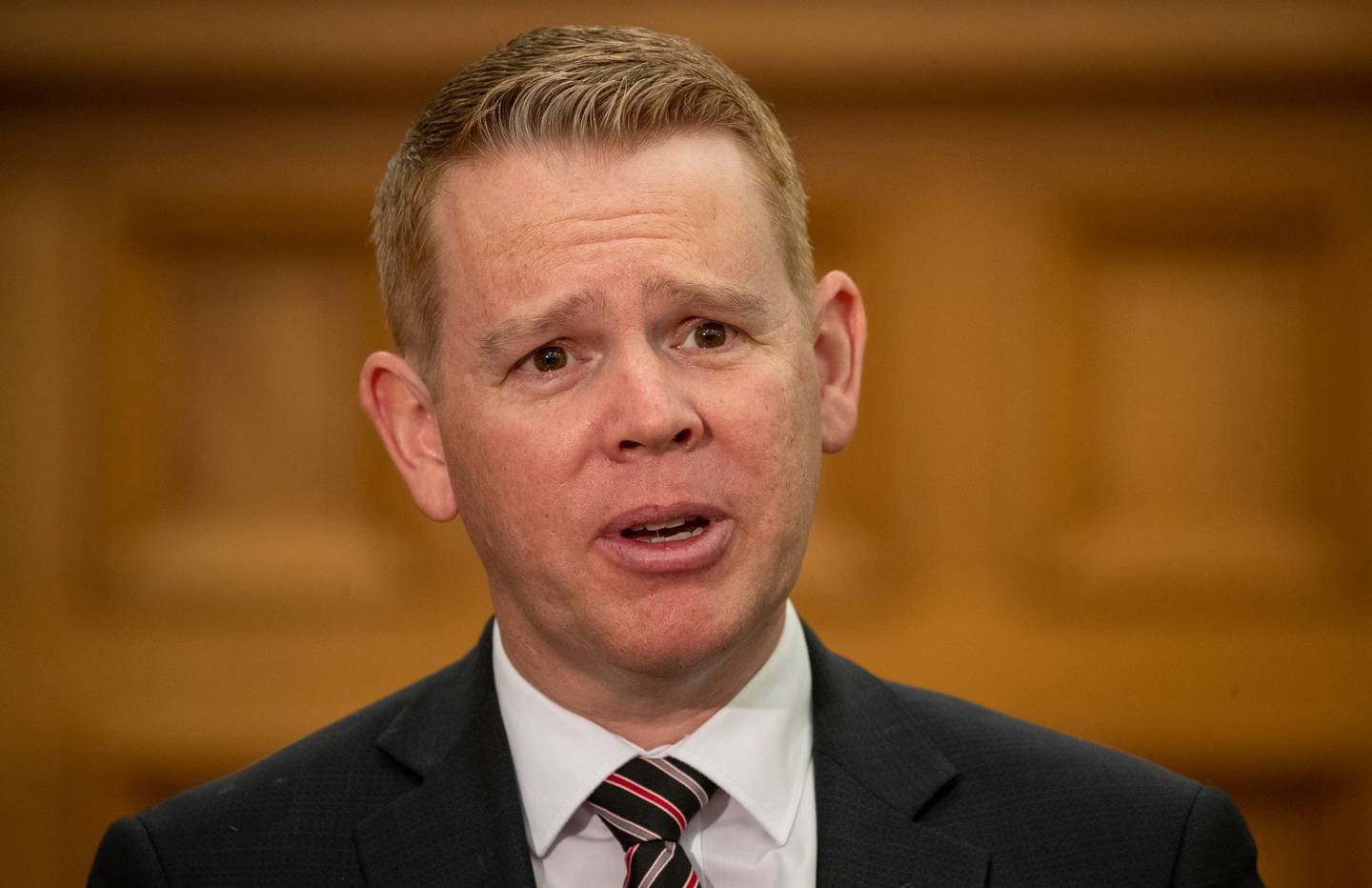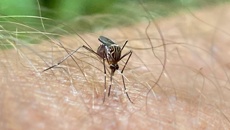The first case of Omicron has been detected in New Zealand, director general of health Dr Ashley Bloomfield says.
The Omicron case has been detected in managed isolation in Christchurch, he said.
Bloomfield said he wouldn't rule out future localised lockdowns, should Omicron make its way into the community.
"Even under the current [traffic light] framework, there is provision for local restrictions - whether that is Delta or Omicron."
The Omicron case flew into New Zealand flew from Germany, via Dubai, and is double vaccinated with the Pfizer vaccine.
"This person was tested on day 1. The positive test result on day 2 was recorded."
The person with Omicron is now staying in a special quarantine wing in a broader MIQ hotel.
Bloomfield said the bus driver who took the person to their hotel will get tested, as well as the crew on the Air New Zealand flight which took the case from Auckland to Christchurch MIQ.
There's one other case confirmed from that flight but genome sequencing from that other case shows it is Delta.
Bloomfield couldn't disclose the hotel the Omicron case is isolating at.
"We are treating every border-related case as if it was Omicron," he said.
Urgent sequencing work is being carried out on all border cases, Bloomfield said.
"The one change we have made is if there is an Omicron case ... everyone on that flight is considered a close contact," Bloomfield said.
Bloomfield said good infection prevention protocols were in place.
The person with Omicron will stay in MIQ for 14 days.
"We have every intention of keeping Omicron out of the country for as long as possible."
He said other people in MIQ should not be at risk if strict infection prevention measures were adhered to.
Asked what his message was for Cantabrians ahead of the holiday season, Bloomfield said it was the same as the rest of the country: "Make sure you're vaccinated, mask, scan, pass and be vigilant."
"If you are feeling unwell, get tested but in the meantime, this is not a case that is out in the community."
Bloomfield said more information was arriving daily about the nuances of Omicron.
He said authorities here will monitor the pandemic in Australia, where Omicron gained a foothold already.
The United Kingdom had an enormous outbreak that was growing daily, he said.
The behaviour of Omicron abroad would partly inform any decisions made in New Zealand about vaccines or booster shots, Bloomfield said.
The incubation period for Omicron is still under investigation but it seems it is even shorter than for the Delta variant, Bloomfield said. That makes officials "even more confident" that it would be detected within the first seven days in MIQ.
The new variant could also affect the reopening of New Zealand's borders next year.
When Omicron was first discovered, nine southern African countries were classified as very high-risk but that classification was now pointless, Bloomfield said.
That was because Omicron was everywhere.
Bloomfield said based on available information, two Pfizer doses were about 40 per cent effective at preventing symptomatic illness with Omicron.
"But that third booster dose puts that back up at between 80 or 90 per cent. That's good news," he added.
Epidemiologist Michael Baker said that on its own Omicron doesn't pose much risk as the case has been detected in quarantine.
"The significance for us is much different to every other country, as we are isolating everyone that enters New Zealand. This is the benefit of New Zealand sustaining its quarantine system at the present time."
"The risks are no more serious than having any other case detected in MIQ. The difference is, if the case did infect staff and get into the community it would be much more severe - this variant is effectively more transmissible because to some extent, it can evade immunity."
"We know of no Omicron cases in the community and we want to keep it that way. We see in Australia and the UK you've got Omicron transmitting very widely while there is a Delta outbreak. Omicron will increase because it can partially evade the immunity we built up through vaccination."
"It is definitely not something we want to have in New Zealand at the moment."
"I think the biggest decision confronting the Government now is what to do about the planned relaxation of border controls in January and February next year," he said.
"It seems to be a logical decision would be to postpone the opening plan into February to give people more certainty and understand more about this variant. The home isolation plan was designed when we were dealing with the delta variant which is being well contained and keeping rates relatively low across the country. In that scenario, we can tolerate a less rigorous quarantine system."
"When the goal is now to keep out every case of Omicron, we are back to in a sense, an elimination status of the variant. I don't think the government's current reopening plan is compatible with keeping Omicron out," Baker said.
"Omicron will very soon become the dominant variant in MIQ. Typically we are only seeing one to three Delta cases a day in MIQ... Soon we will see mixed infections. It's not quite clear to me whether this is something that will displace the Delta variant.
Several flight crew members who arrived in New Zealand on Monday night are close contacts of an Omicron case.
The crew members have been identified as close contacts of an Omicron variant case in Australia.

Covid response Minister Chris Hipkins said earlier this month that it was inevitable that Omicron would reach New Zealand. Photo / Mark Mitchell
Earlier this month, Covid-19 Response Minister Chris Hipkins said it was "inevitable" that Omicron would turn up in MIQ - but that it was too soon to predict whether the country would revisit the plan to lift international border restrictions from January
What we know about Omicron
While early studies suggest the Omicron variant may be able to bypass some of the antibody immunity brought about by the Pfizer vaccine, researchers are confident that the jab offers reasonable protection against severe disease.
The Immunisation Advisory Centre's medical director, Professor Nikki Turner, told the Herald this is a vital feature of an effective vaccine.
"This should continue to reassure us of the importance of continuing the heroic efforts of our vaccination programme to ensure as many of our population can access the vaccine as possible."
Moreover, studies suggested a third booster dose of the Pfizer shot may be able to stop Omicron in its tracks.
"A booster dose, or having previously had Covid, appears to be important in restoring much of the reduction in protection to the vaccine," Turner said.
"There is a question as to when the best timing of a booster dose will be, many countries are considering what the best timing for a booster dose would be, and that is a decision that New Zealand is also currently reviewing."
Vaccinologist Helen Petousis-Harris on reaching 90 per cent, why we shouldn't stop now and the importance of boosters in the wake of Omicron. Video / NZ Herald
Australia recorded its first cases of Omicron last month - two people who flew into Sydney from southern Africa on November 27 were infected with the strain.
The variant has since spread to multiple Australian states, prompting questions about the Government's plan to begin re-opening the New Zealand border in January.
From January 16 2022, fully vaccinated Kiwis and other eligible travellers are expected to be able to travel from Australia without needing to go through MIQ. Instead, you can isolate at home for seven days.
Fully vaccinated Kiwis and other eligible travellers can travel to New Zealand from all other countries from February 13, while all fully vaccinated individuals can travel to New Zealand from April 30 onwards.
But Prime Minister Jacinda Ardern said key travel dates will be reviewed at a meeting just over a week before then.
The latest information on Omicron would be discussed at that meeting.
"If we roll forward self-isolation when Omicron is dominant in Australia, it will effectively be the start of Omicron here," Ardern said on Tuesday.
The PM said the severity of any variant, and the impact of existing vaccines would be assessed.
More soon.
Take your Radio, Podcasts and Music with you









